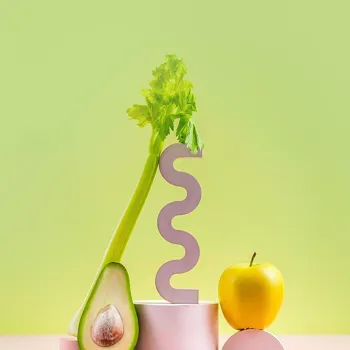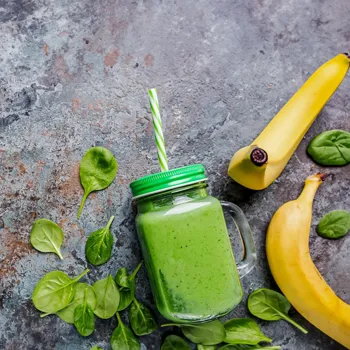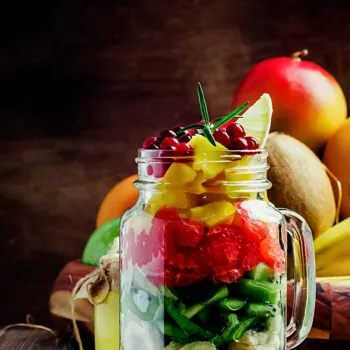Is Your Diet Balanced? Signs You Need Changes. Discover why balance is key to health. Read more for insights
Namaste, readers! In today's fast-paced life, where instant noodles and online food deliveries
reign supreme, it's easy to let a healthy, balanced diet take a back seat. But remember, what you eat fuels your body and mind. So, are you getting all the essential nutrients you need?
Or is your dietary compass pointing in the wrong direction? Let's find out!
Understanding a balanced Indian diet for optimal health and well-being
Before we dive into the signs, let’s understand what a balanced diet actually means in the Indian context. It’s not just about eating less or cutting out entire food groups.
A balanced Indian diet is a colourful thali (plate) that includes carbohydrates for energy, proteins for building and repairing tissues, healthy fats for hormone production and overall well-being, vitamins and minerals for various bodily functions, and of course, plenty of fibre and water.
It's about achieving a harmonious blend of these elements to keep you feeling your best. This also means including local and seasonal produce, because they are freshest & full of nutrients!
Constant Fatigue
Feeling tired even after a good night's sleep? This could be a red flag. A lack of essential vitamins and minerals, like iron and B vitamins, which are crucial for energy production can be the culprit. These vitamins help transport oxygen in the blood & convert your meal into energy.
A diet high in sugary snacks and processed food can also lead to energy crashes, leaving you feeling drained. Opt for complex carbohydrates such as millets, fruits and fresh vegetables which provide sustained energy.
Frequent Colds and Infections
A balanced diet is the cornerstone of a strong immune system. If you are catching colds or other infections frequently, your body probably is not getting the nutrients it needs to defend itself. Vitamin C, zinc, and antioxidants are vital for immune function.
Include citrus fruits like oranges and lemon, amla (Indian gooseberry), and foods rich in probiotics like yogurt to boost your immunity. Also, make sure that you’re eating all types of vegetables so you're getting enough vitamins & minerals.
Hair Fall and Brittle Nails
Are your hair looking dull and falling out more than usual? Or are your nails weak and easily breakable? These could be signs of nutrient deficiencies. Protein, iron, biotin (vitamin B7) and zinc are very important for maintaining healthy hair and nail growth.
Incorporate lentils, pulses, nuts, and seeds such as sunflower seeds and pumpkin seeds, in your diet. You should also consult a doctor to rule out any serious medical condition.
Digestive Issues
Bloating, constipation, indigestion – these are all signs that your digestive system is not happy. A lack of fibre is a common reason for these problems. Fibre helps to keep your digestive system moving smoothly. Increase your intake of whole grains, fruits, vegetables, and legumes.
Drinking plenty of water is also very important, keep drinking water throughout the day to avoid bloating and other digestive issues.
Skin Problems
Skin conditions like acne, dryness, or eczema can sometimes be linked to your diet. Consuming too much processed food, sugar, and unhealthy fats can trigger inflammation in the body, which may manifest as skin problems.

Focus on foods rich in antioxidants especially colourful fruits, vitamin E, and omega-3 fatty acids to help to improve skin health. If the condition is severe you should consult a dermatologist.
Difficulty Concentrating
A balanced diet is not only important for a healthy body, but also for a sharp mind! Poor concentration and brain fog can often be due to inadequate nutrient intake. The brain needs a steady supply of energy and nutrients to function optimally.
Make sure you are eating foods rich in complex carbohydrates, healthy fats, especially omega-3 fatty acids, and antioxidants.
Muscle Cramps
If you are experiencing frequent muscle cramps, especially after physical activity, it could be a sign of mineral deficiencies. Potassium, calcium, and magnesium are important electrolytes that help regulate muscle function.

Bananas, spinach, dairy products, and nuts are good sources of these minerals. You should also drink enough fluids to prevent dehydration, which can worsen muscle cramps.
Sleep Troubles
A poor diet can also impact your sleep quality. Eating a heavy, processed meal close to bedtime can disrupt your sleep. Also, deficiencies in certain vitamins and minerals, such as magnesium, can contribute to insomnia.

Try to eat a light and healthy dinner a few hours before bedtime, and focus on foods that promote relaxation, such as milk and nuts.
Slow Wound Healing
If cuts and bruises take longer than usual to heal, it could be a sign that you are not getting enough of the nutrients needed for tissue repair. Protein, vitamin C, and zinc are all involved in wound healing.
Make sure you are eating enough protein-rich foods like lentils, zinc and foods rich in vitamin C to promote faster healing. If you have a chronic wound that does not seem to be healing, consult a doctor.
Weight Fluctuations
Both sudden weight loss and unexplained weight gain can be signs that your diet is not balanced. A balanced diet helps regulate your metabolism and maintain a healthy weight. Avoid crash diets and focus on eating a variety of healthy foods in appropriate portions.
If you have unexplained weight fluctuations, consult a doctor to rule out any underlying medical conditions.
10 signs your diet needs a makeover
So, there you have it – 10 signs that your diet might need a makeover.

Individualize diet to body cues for optimal health
Remember, a balanced diet is not a one-size-fits-all thing. What works for one person may not work for another. It is also important to listen to your body. Pay attention to how you feel after eating different foods, and adjust your diet accordingly.
Invest in health by making small dietary changes weekly
Don't think of this as a punishment, but as an opportunity to invest in you health. Start by making small, gradual changes. You should try to add one new healthy food to your diet each week, or try to replace one unhealthy habit with a healthier one.
Focus on whole, unprocessed foods, and limit your intake of sugary drinks and processed snacks.
Consult dietitian or doctor for personalized diet plan based on medical conditions
Finally, consulting a registered dietitian or nutritionist can provide personalized guidance and help you create a balanced diet plan that meets your unique needs. There can also be an underlying medical condition for the nutrient deficiency, so doctors consultation is a must.
Balanced diet is a journey to a healthier you
A balanced diet is not a destination, it is a journey, like life it is a journey filled with mindful choices that lead to a healthier and happier you!
AI Generated Content. Glance/InMobi shall have no liability for the content


















